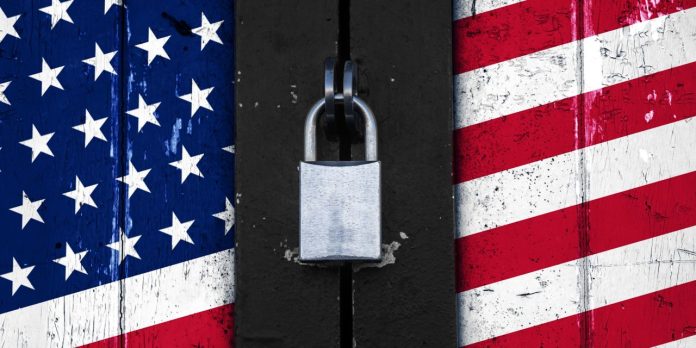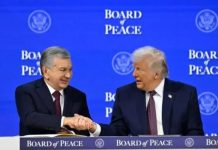By Jordan Ryan
The recent U.S. election, which delivered a decisive popular vote and Electoral College victory for Donald Trump, signals a pivotal shift that could have profound implications for the United Nations and its capacity to uphold democratic norms and tackle pressing global challenges. As one of the UN’s founding members and its largest financial contributor, the U.S. has historically played a central role in supporting multilateral solutions to issues like climate change, peacebuilding, health crises, and human rights. The U.S.’s robust support for the UN has been essential in promoting democratic accountability across the globe. However, recent moves by the Republican-controlled House of Representatives and anticipated policy directions of the incoming Trump administration to reduce U.S. engagement and funding threaten to weaken the UN’s effectiveness and stability.
The Impact of U.S. withdrawal from multilateralism on global cooperation
President Trump’s renewed focus on an “America First” doctrine signals a retreat from multilateral commitments in favor of national interests and bilateral agreements. This approach reflects a more transactional model of international relations, wherein U.S. engagement is driven by specific, short-term gains rather than broader, long-term commitments to shared global challenges. Such a shift prioritizes immediate returns on U.S. contributions over sustained cooperation, potentially undermining the UN’s ability to address complex issues that require collective action, such as climate change, peacekeeping, and public health.
The transactional emphasis may also strain relationships with allies and shift global influence to other nations willing to invest in multilateralism. Without consistent U.S. backing, the UN may struggle to mobilize resources and the political will necessary to tackle urgent issues, opening space for other powers to redefine the Organization’s priorities in ways that may not align with traditional democratic norms or human rights principles.
The DEFUND Act of 2023 and Congressional threats to UN funding stability
The DEFUND Act, though not yet passed, underscores an unsettling shift within the U.S. Congress toward disengagement from the United Nations. This sentiment was further exemplified on June 3, when the House Committee on Appropriations proposed a foreign operations budget for the 2025 fiscal year that effectively eliminates U.S. funding for the UN’s regular budget. Approved on June 12, this budget further prohibits U.S. contributions to critical UN agencies, including the International Court of Justice, the UN Relief and Works Agency (UNRWA), the United Nations Commission of Inquiry against Israel, the UN Population Fund, and the World Health Organization.
In stark contrast, the Senate Committee on Appropriations, reflecting a more supportive stance toward international commitments, has proposed a budget that fully funds U.S. dues to the UN and even increases funding to recruit and place Americans in entry-level UN jobs. However, with the recent shift to a Republican majority, the traditional U.S. support for the UN through these Senate proposals may be called into question.
These legislative moves and countermoves set a concerning precedent that could destabilize the financial foundation of the UN, where U.S. funding has historically been pivotal. If enacted, the House’s restrictions would severely curtail the UN’s capacity to operate effectively in key areas such as humanitarian aid, peacekeeping, and global health, impairing its ability to respond to urgent global challenges. Given the significant implications of these budget proposals, it is crucial for the international community to remain attentive as a new Congress moves toward reconciling their sharply differing positions. The outcomes could significantly impact the UN’s ability to fulfill its mission, particularly considering President Trump’s priorities, which further emphasize unilateralism and reduced global engagement.
Challenges for human rights and democratic norms
With the U.S. potentially stepping back from its role in supporting human rights and democratic accountability, the UN’s capacity to uphold international norms may weaken. The UN relies on its Member States, especially major donors, to lead by example and advocate for human rights. A reduced U.S. presence could embolden nations with restrictive policies, eroding the UN’s influence and effectiveness in promoting democratic values and protecting vulnerable populations.
Climate action and Sustainable Development Goals at risk
The UN’s efforts to coordinate climate action and sustainable development could face substantial setbacks without strong U.S. participation. The U.S., as a leading global emitter and economic powerhouse, plays a crucial role in multilateral climate agreements like the Paris Accord. A scaled-back commitment from the U.S. would likely undermine the UN’s ability to galvanize global climate action and could lead other countries to reduce their ambitions. Similarly, the Sustainable Development Goals (SDGs), which require international cooperation and funding, may face challenges if the U.S. shifts its focus toward economic growth over sustainability and development.
Global migration and refugee support under threat
President Trump’s hardline stance on immigration may influence other countries facing similar migration pressures, leading to a potential global shift toward more restrictive policies. For the UN Refugee Agency (UNHCR) and related bodies, diminished U.S. support would mean fewer resources to manage large-scale humanitarian crises, such as those arising from conflicts and climate-driven displacement. The UN’s ability to coordinate and fund critical support for refugees and migrants may be compromised, impacting millions who rely on UN assistance.
Repercussions of U.S.–China rivalry on UN agencies
A renewed U.S. emphasis on countering China may add strain to the UN, as the Organization could become a battleground for influence between these two powers. With both countries vying for leadership in international bodies that set global standards, the UN’s neutrality and ability to act as a consensus-builder could be threatened. This rivalry risks further politicizing the UN, complicating its mission to foster cooperation on issues like trade, climate change, cybersecurity, and technological standards.
Global health initiatives at a crossroads
The UN, through agencies like the World Health Organization (WHO), has been instrumental in coordinating pandemic response and addressing public health crises. Reduced U.S. funding for WHO and other health initiatives could limit the UN’s ability to prepare for and respond to future health emergencies. The absence of U.S. support would weaken the global health infrastructure and diminish the UN’s capacity to protect vulnerable populations from the spread of infectious diseases.
Conclusion: Preserving the UN’s effectiveness amid shifting U.S. priorities
President Trump’s renewed approach to foreign policy marks a critical juncture for the United Nations. The DEFUND Act of 2023 and recent Congressional efforts to restrict U.S. funding to the UN set a concerning precedent, with the potential to reshape the UN’s operational capacity.
As the U.S. reconsiders its level of commitment to multilateralism, it is essential for the UN to underscore the value it provides to all Member States, including the U.S., through its role in promoting stability, addressing health crises, and fostering sustainable development. Moreover, supporting democratic norms remains a cornerstone of the UN’s mission; ensuring the Organization continues to uphold these values in the face of shifting U.S. priorities is critical. The international community’s response to these changes will be pivotal in defining the UN’s future role as a linchpin of global cooperation and as a crucial forum for addressing complex, shared challenges.
Author: Jordan Ryan is a member of the Toda International Research Advisory Council (TIRAC) at the Toda Peace Institute, a Senior Consultant to the Folke Bernadotte Academy (Sweden) and former Vice President for Peace at The Carter Center. He recently completed an assignment as the lead author of the UN integration review for the Executive Office of the Secretary-General. Mr. Ryan served as UN Assistant Secretary-General and UNDP Assistant Administrator from 2009-2014, was Deputy Special Representative in Liberia, and UN Resident Coordinator in Vietnam. He holds graduate degrees from Columbia University and George Washington University and received his B.A. from Yale University. He was also a fellow at Harvard’s Kennedy School.






